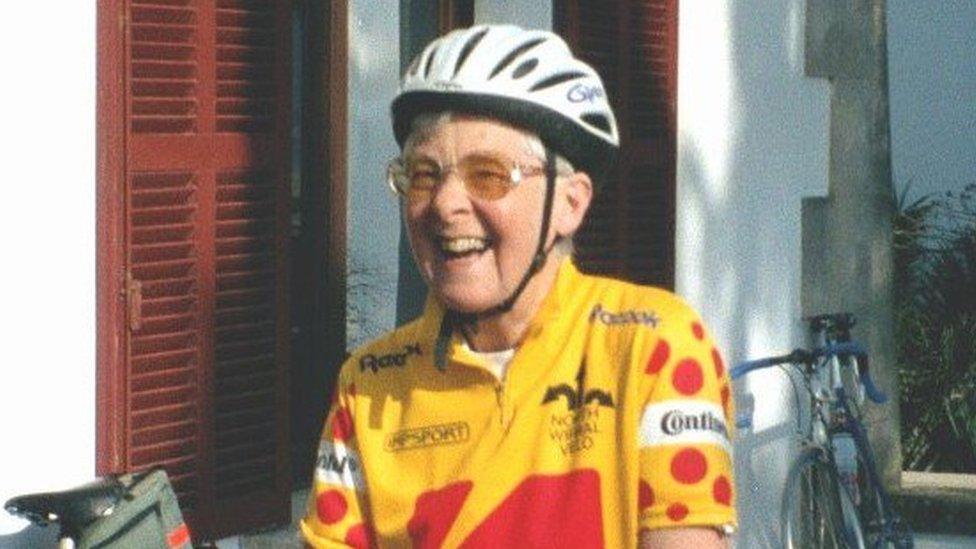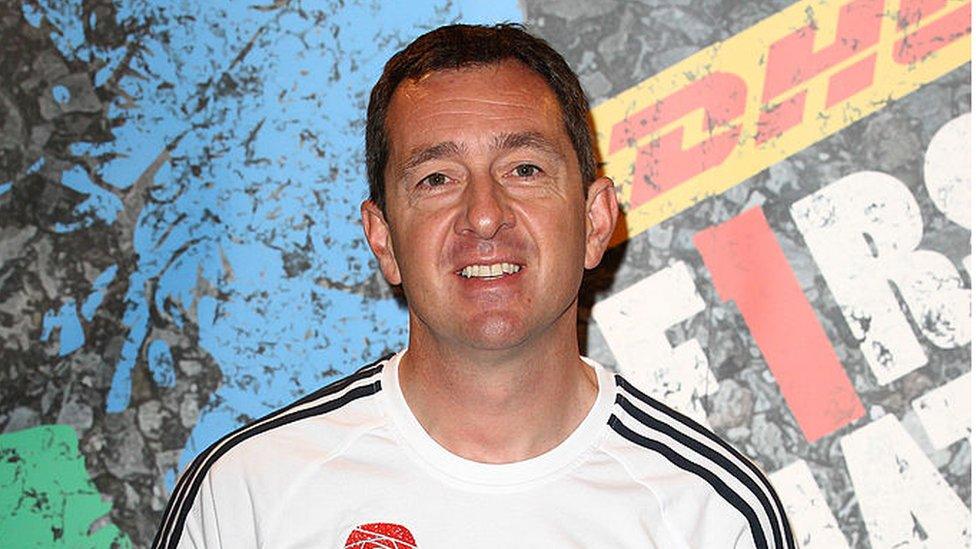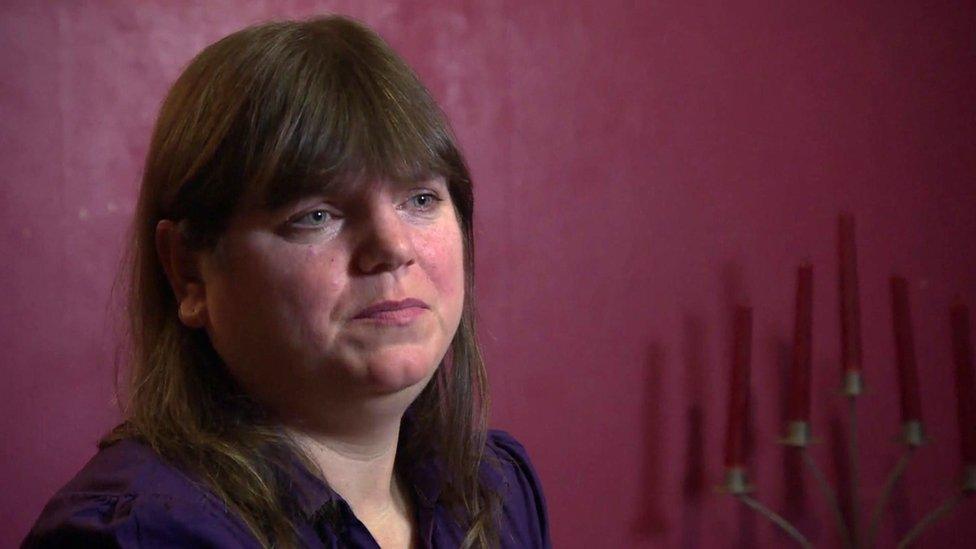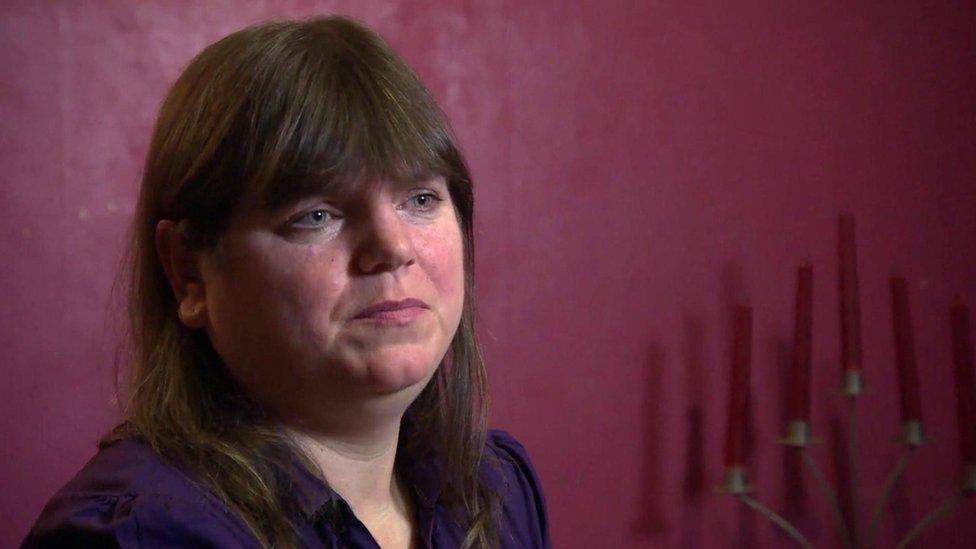Unduly lenient sentences review scheme 'inadequate'
- Published

A request to review the sentence of the driver whose careless driving killed Carol Boardman was rejected
A third of public requests to extend "lenient" sentences are rejected because the crimes committed are not eligible for review, data reveals.
The unduly lenient sentence scheme lets people ask for a review in cases including murder, rape and terrorism.
Olympic cyclist Chris Boardman, whose mother was killed by a careless driver, said all driving crimes where someone died should be included.
The government said it was considering extending the scheme.
Figures obtained by the BBC under Freedom of Information laws show the unduly lenient sentence scheme, external received requests to increase 3,499 crown court sentences in England and Wales between 2015 and 2018.
Only 643 of these ended up at the Court of Appeal with 478, 14% of the total, resulting in harsher punishments.
About a third of all requests, 1,148, were dismissed outright because the crimes committed were not eligible for review - something critics say has to change.

Death 'should be a triggering factor'

Chris Boardman is calling for more drivers to be banned after serious offences on the roads
A request was made to review the 30-week prison sentence for the driver who caused the death of Carol Boardman, mother of Olympic cyclist Chris Boardman.
While death by dangerous driving is covered by the unduly lenient sentence scheme, death by careless driving is not.
Liam Rosney, 33, was jailed after he admitted causing death by careless driving at Mold Crown Court on 31 January.
Mr Boardman - who was not aware of the review request - said if a crime involved a death this should be a "triggering factor" in deciding whether it was serious enough for the scheme.
"I think by and large with driving crime the devastation is the same as if somebody used a knife," he said.
"The outcome is exactly the same, a dead person killed in a horrific way, but you can see that we do not treat driving offences the same."

A further 1,561 requests were not referred to the Court of Appeal because government law officers did not believe the judge had given the wrong sentence.

Under the scheme only certain types of case can be reviewed, including:
Murder
Rape
Robbery
Some child sex crimes and child cruelty
Some serious fraud
Some serious drug crimes
Some terror-related offences
Crimes committed because of a victim's race or religion
The Attorney General's Office said most sexual offences are also included, as is causing grievous bodily harm with intent, perverting the course of justice, threats to kill, firearms offences and blackmail.

'Inadequate'
Arfon Jones, Police and Crime Commissioner for North Wales, said: "The law is inadequate and it is hugely important that the scheme should be expanded to cover more offences."
He said downloading and sharing images of child abuse should be included in the scheme because it was "just as damaging" as sexual assault.
Lyndon Harris, from Oxford University's Centre for Criminology, said the scheme should cover all serious crimes to increase public confidence in the justice system.
He said the government should not assume some offences, such as sex crimes or terrorism cases, featured "more errors than others".
The government said offenders who take or distribute indecent images already face 10 years in prison.

What is an unduly lenient sentence?

By waiving her anonymity and campaigning, Jill Saward is thought to have changed how rape victims are treated in the UK
The government launched the unduly lenient sentence scheme, external in 1989 after a series of controversial court cases caused public outcry.
One of these cases came to be known as the "Ealing vicarage rape".
The incident, in 1986, involved a gang of burglars who raped Jill Saward - who died in 2017 - after breaking into the vicarage where she lived.
Ms Saward waived her right to anonymity in order to change attitudes towards victims and the support they receive.
One of the men was given a longer sentence for the burglary than the rape.
The unduly lenient sentence scheme is designed to let anyone ask for a serious crown court sentence from England or Wales to be reviewed by the Attorney General's Office.
Only one request is needed for the government to decide whether a sentence can be looked at again, but it must be lodged within 28 days of the ruling.

The figures showed that between 2015 and 2018 there were 284 cases that involved prison sentences only and where sentences were lengthened.
Of these 58 saw the sentence more than doubled.
In June child rapist Peter Daniels, 70, had his minimum sentence for six life terms increased from nine years to 12 under the scheme.
'Comfort to families'
Nearly one in five of the 478 appeals related to sentences for sexual crimes, including rape and sexual assault. Of these, stricter punishments were issued in 151 cases.
For 102 judgements looked at again by the Court of Appeal not only was the punishment, such as prison time, increased the nature of the sentence was changed - for example a community order being changed to a prison sentence.
In 76 of these cases a suspended sentence was changed to an immediate custodial sentence, 20 community orders were changed to prison sentences and six non-life prison sentences were changed to life sentences.
A government spokeswoman said: "There will be a range within which a judge might sentence reasonably - and in the vast majority of cases judges get it right."
"The unduly lenient sentence scheme is available to ensure that the Court of Appeal can review cases where there may have been a gross error in the sentencing decision."
She added the scheme had brought comfort to "many victims and their families" and its scope had already been extended in 2017 to include terror offences.
"The Government committed in its manifesto to extend the scope of the scheme and this is being considered currently," she said.
- Published31 January 2019

- Published5 January 2017
